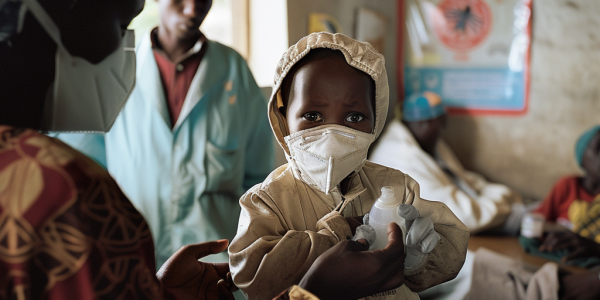Air Pollution Linked to Rising Obesity Rates in Delhi
Recent studies reveal a troubling connection between air pollution and obesity, particularly in cities like Delhi, where severe air quality levels have been recorded. Health experts warn that pollutants such as PM10 and PM2.5 not only harm respiratory health but also contribute to weight gain and metabolic issues. With the Air Quality Index in Delhi surpassing 400, the need for urgent action to combat air pollution and its health implications has never been more critical.
Public Health Alert Issued for Typhoid Fever Exposure at Martensville Domino’s Pizza
The Saskatchewan Health Authority has issued a public health alert for potential Typhoid fever exposure at a Domino’s Pizza in Martensville. Customers who dined there between October 11 and October 19 should be aware of symptoms like fever, headache, and gastrointestinal issues. While the risk is considered low, health officials advise seeking medical attention if symptoms develop. Stay informed about food safety and Typhoid fever prevention.
Severe Malaria Outbreak in Ethiopia: Over 7.3 Million Cases Reported
Ethiopia is facing a severe malaria outbreak, with over 7.3 million cases and 1,157 deaths reported in 2024. The situation is dire, particularly for children under five, and exacerbated by healthcare delivery challenges in conflict-affected regions. The World Health Organization has assessed the national risk as high, highlighting the urgent need for targeted interventions and community engagement to combat this public health crisis.
Innovative Non-Invasive Drug Delivery System for Parkinson’s Disease
Discover a groundbreaking non-invasive oral drug delivery system for Parkinson’s disease management. This innovative approach allows for continuous administration of levodopa-carbidopa, enhancing patient comfort and treatment efficacy. Learn how this technology addresses medication challenges and improves quality of life for individuals with chronic conditions.
Study Reveals Telephone Therapy Benefits for Refugee Children’s Mental Health
A groundbreaking study by the University of Surrey reveals that telephone therapy significantly improves mental health in refugee children. Conducted with Syrian refugees in Lebanon, the research shows that phone-based therapy not only reduces symptoms but also boasts higher completion rates than traditional methods. This innovative approach addresses the urgent need for accessible mental health care amid the ongoing refugee crisis, leveraging technology to reach vulnerable populations effectively.
UT Dallas Researchers Receive $3.7M NIH Grant to Study Brain Aging
Researchers at The University of Texas at Dallas have received a $3.7 million NIH grant to expand their study on brain aging. Led by Dr. Kristen Kennedy and Dr. Karen Rodrigue, this groundbreaking research will utilize advanced 7-Tesla MRI technology to investigate cognitive and brain health across a 14-year span. The study aims to uncover metabolic factors influencing healthy aging and cognitive decline, with implications for Alzheimer’s disease and overall public health.
New York Achieves Fourth-Highest Life Expectancy in the U.S.
New York ranks among the top states in life expectancy, boasting an impressive average lifespan of 79 years, tied for fourth in the U.S. with New Jersey. This data from the CDC highlights significant health trends and disparities across states, with Hawaii leading at 79.9 years. Understanding life expectancy is crucial for shaping healthcare policies and community health initiatives.
Study Reveals Persistent Mistrust in COVID-19 Vaccine Science Among Americans
Recent surveys reveal a persistent mistrust among Americans regarding COVID-19 vaccine science, with 35% expressing skepticism. Research from CUNY and the Barcelona Institute for Global Health highlights demographic disparities, showing that men, higher-educated individuals, and those who experienced personal loss due to the virus exhibit greater trust. The findings emphasize the importance of science literacy and tailored communication strategies to improve vaccine uptake and public health responses.
Study Links Pesticide Exposure to Increased Prostate Cancer Risk
Recent research from Stanford University reveals a troubling link between pesticide exposure and prostate cancer, identifying 22 pesticides that may increase risk. This groundbreaking study highlights the potential dangers in common foods and emphasizes the need for consumers to be aware of agricultural practices affecting their health. With prostate cancer affecting one in eight men in the U.S., understanding the implications of pesticide residues in food is crucial for public health.
Pumpkins: The Nutritional Powerhouse You Can Enjoy Year-Round
Discover the incredible health benefits of pumpkins, the most nutrient-dense fruit according to the CDC. Packed with antioxidants, fiber, and essential vitamins, pumpkins support immune function, digestive health, and heart health. Learn how to incorporate this versatile superfood into your diet year-round with delicious recipes and preparation methods.










